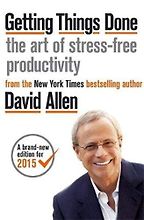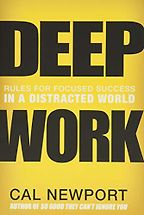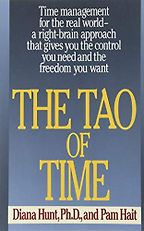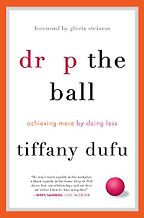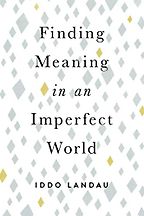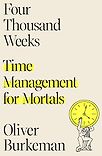Thank you for putting together this list of the best books on time management. Firstly, could you tell me what time management is—and why people are so interested in becoming better at time management?
I almost think: what isn’t time management? The clichéd idea of time management is this rather shallow genre, where it’s all about how you organise your work day, or why you should cook all your meals for the week on a Sunday afternoon to save time. But time management is actually something vastly more important than that, if we start by confronting the truth that we don’t have very much of it. To take the challenge of time management seriously is to talk about building a meaningful life with your limited time on the planet.
The other thing that’s worth saying is that time is an extremely weird phenomenon. It can’t be managed, at least in the way that money or physical possessions can be managed. It just keeps implacably rolling on. Everyone gets 24 hours a day, and you can’t put any of it aside to save for later. And you never know if you’re going to get another moment of it.
Part of my own book, Four Thousand Weeks, is based on exploring this question. What goes wrong with our efforts at time management is treating time as something we can manage in that straightforward way. We can’t, so the attempt to do so leads to various perverse effects, leaving us busier or more stressed, or living less meaningful lives, because the project at its core is flawed.
I like your selection of books, because you’ve offered both conventional time management guidebooks and books that are asking more profound questions about priorities, finding meaning, and so on. Let’s start with a discussion of the time management guru David Allen and his book Getting Things Done. It’s one of the time management bibles (and he’s also recommended the best books on productivity for us).
This was one of the books that started my own interest in this area. It was revolutionary in its time, more than 20 years ago. This book was hugely popular with Silicon Valley people—software developers, computer geeks in general. But it was aimed, in the first instance, at a more conventional realm of managers: there’s a picture of Allen on the cover of the first edition, wearing a suit, the epitome of respectability, nothing remarkable… And yet it’s a book that crystallised a handful of really deep and true and powerful insights about how to organise your work within time—the kind of insights that are so fundamental now that Allen probably doesn’t get all the credit he should get, because they just seem like givens.
Probably the most penetrating one is that a lot of the stress that we associate with feeling overwhelmed with work is actually the stress of using our brains to keep track of and remember everything that’s on our plate. It’s not necessarily that there’s too much to do, but that our brains are badly designed for storing lists of what to do, although they’re very well designed for actually doing things. So one of Allen’s core guiding ideas is that if you get all the things that are on your plate out of your head and into what he calls ‘a trusted system’—in one place, on a computer or in a notebook—then your mind can relax, and let go of the attempt to keep track of it all.
He calls those unfinished tasks ‘open loops’.
He would say the thought will come to you at three in the morning that you need new batteries for the smoke alarm—but it will not come to you in the supermarket when you’re walking past the batteries. The mind is ill-adapted to this job. It reminds you of things in a haphazard, stress-inducing way. This builds on the well-known observation that writing things down in a list is stress-reducing, even when you haven’t yet done any of the things on the list. When you’re feeling overwhelmed, it’s stress-reducing merely to get it out of your brain in that way.
The other big thing that he maybe doesn’t get enough credit for is the distinction he makes between ‘projects’ and ‘actions’. A project, on his definition, is anything that takes anything more than one action step to complete. So it’s not just big projects like ‘launch new company website’ or ‘write a book’, but ‘clean the house’ or ‘get the car fixed’. A task is doable. You ask: what’s the next action? For getting the car fixed it might be getting the number of the mechanic. Think of your day as a series of actual, doable, physical next steps.
“A lot of the stress that we associate with with work is actually the stress of using our brains to keep track of everything on our plate”
This explains the phenomenon that I think we’re all familiar with, where someone keeps a to-do list, but there are various items that sit there for ages undone. Like ‘Get car fixed.’ One of the reasons it’s there for ages is because ‘get car fixed’ is not a specific, doable thing. It’s the name of a project, for which the next action hasn’t yet been clarified. I’ve certainly benefited from this system myself.
He then builds a whole time management system on top of it, which personally I find can sometimes be a little too involved for my specific work–but any difference of opinion about that pales by comparison to the core insights of this book.
Yes, I totally agree. Actually his book, and the conversation I had with him a year or so ago, has really impacted the way that I work on a daily basis. When I’m feeling overwhelmed, as I have been this week, I have a sort of mantra that I chant to myself when I need to calm down: small, achievable goals.
What all these books have in common, and what I hope my own book is doing, is that they encourage a certain kind of confrontation with the reality of the situation. What David Allen brings is this idea that there’s too much to do, and that your brain is not a good place to keep it. So it’s all about bringing the focus back to what’s doable, now, in the moment, for real. Deep Work has some of this going on too. I think Cal Newport was deeply influenced by David Allen’s thinking.
Right, yes. Let’s talk about our second time management book, Cal Newport’s Deep Work, another very popular book.
One of the arguments that he wants to make, I think, is that there’s a certain kind of work that isn’t well suited to the canonical approach of Getting Things Done, which is to divide everything into little units and then do them, in the manner of ‘cranking widgets’, as David Allen puts it.
Yes. Newport has written about this revelation specifically on his blog. He suggests that the Getting Things Done approach is best suited to what he calls ‘shallow work’, that is, the box-ticking, to-do list-conquering type of busy-ness, rather than for producing things of lasting value that require deep concentration and focus.
I think reflecting on things, just being able to think about things in an open-ended way, is increasingly essential for many of us in the jobs that we do. Deep Work is partly about how to safeguard that kind of time in your schedule, because the risk of a certain application of the Getting Things Done method is that you just do 8,000 tiny things in a row, but never get to fall into a state of deep reflection.
One of the things that I think Newport is very strong on is what he calls ‘fixed schedule productivity’, which is this idea of approaching your work by first figuring out how much time you’re going to devote to it, then making your choices about what to work on based on that pre-decided container of time. So, you might decide you’re going to work from 9am to 5:30pm, with an hour for lunch, and do what you can—instead of having a list of things you’re going to get through, which for all sorts of reasons is probably just going to grow longer and keep you working until 11pm. Blocking off time first is a mechanism that then obliges you to make choices about how to use your finite time instead of killing yourself to get everything done.
Five Books interviews are expensive to produce. If you're enjoying this interview, please support us by donating a small amount.
He has a whole methodology that involves drawing little blocks on a calendar: I’m going to assign the first three hours to this important project; then I’ll spend two hours on email. It’s very simple, in a way—but so much bad time management is premised, instead, on the idea that however much you want to get done, there’ll be some method that’s so efficient you’ll be able to do absolutely all of it.
Another good thing about this book is that he’s quite realistic about people’s different lifestyles and situations. Deep work could involve anything from shutting down your communication with the outside world for six months to work on an incredibly hard scientific proof, to safeguarding a handful of individual hours within a high-stress schedule. He’s not implying that everyone is able to go and live in a hut on top of a mountain.
But I do think it’s an important piece of the puzzle, working out how to ring-fence some time for deep work. One important point is to understand how little time it actually has to be. If you can get three hours in a day where you’ve got the energy and lack of interruptions to focus on whatever’s your number one priority, and do that consistently, you’re going to make much more progress than spending your days dreaming of a time when you can give it eight hours.
I guess one issue I have with this idea of ring-fencing time in which to be—I don’t know—inspired, is that alignment of energy or focus and the ring-fenced hours. I try to ring-fence hours, but sometimes find myself spending those hours just staring at my computer. It’s not easy to summon the kind of motivation and concentration that you need for deep work. Does he deal with this question—of how to gee yourself up?
One thing he definitely does deal with, and where I’ve taken inspiration from him, is pushing back against this idea that a plan for the day needs to be a straitjacket, and if you don’t keep to it you’ve failed.
That’s reassuring.
This system of ‘time blocking’—drawing boxes on your calendar and so on—is explicitly one that’s intended to adapt during the day. Your plans change, someone interrupts you in some unavoidable way… OK, next time you get a free moment, you just draw a new set of boxes for what remains of the day. I think you could apply that to failures of motivation, too. You could say, well, look, OK, it’s Monday at 9am but deep work is just not happening. Fine, go and do something else and put that deep work in another part of the schedule instead.
That said, you’ve reminded me of another thing he talks about, which I think is very true, which is that a lot of the motivational issues that we encounter—especially as writers—are the result of distorted expectations about what hard creative work should feel like. He has this lovely idea that writer’s block is just the feeling of writing: if the writing feels hard, maybe that’s because writing is hard, and draws from parts of you that are uncomfortable to access. Maybe I’m putting words in his mouth, but perhaps there shouldn’t be an expectation that something like this will feel delightful. Wasn’t it Muriel Spark who compared writing to taking dictation from God?
Yes. She would just sit down and start writing a book from page one, and she wouldn’t stop writing until she’d finished it.
Well, okay, great. But I don’t know anyone in my own life for whom that’s true. Instead it’s a matter of trying to remember to say to myself, ‘oh, yes, this feels uncomfortable, because it is hard, and that’s ok.’ You can feel like you don’t want to do something, and keep doing it. Don’t turn it into a war with yourself—‘I’m going to power through even though I feel like shit!’ It’s a matter of not being dictated to by your emotions and also not going to war with your emotions.
Shall we move on? Could you tell me why you recommend Diana Hunt and Pam Hait’s book The Tao of Time?
Yes. This can be hard to get hold of. I got mine from a second-hand warehouse. But it did have a big impact on me. It’s a few decades old now.
It very deliberately takes a radically different approach to time management, and seeks to apply insights from Taoism to time management. I don’t know how canonical its take on Taoism is, but essentially it speaks to this idea that time is not something you can expect to master and dominate and dictate to, but something you have to work with as an ally rather than as a predator, as another time management guru puts it.
The Tao Te Ching, which I’m sure you’re familiar with, is full of all these images—the strong reed is the one that bends in the breeze; the wise man is like water, flowing around the pebbles in his path. That sort of thing–resilience through gracefully yielding to reality. That’s a really important insight to bring to time, I think. Because if you decide to fight time—meaning that you try to cram ever more stuff into the same amount of it, or just speed things up to do them faster than they naturally take—you’re always ultimately going to lose. There’s only one winner in a battle with time, and that’s time.
“Time is not something you can expect to master and dominate, but something you have to work with as an ally”
This basic approach of bending with time can manifest in lots of different ways. It might mean having plans for how you want the day to go, but holding them loosely and expecting them to change, or seeing them as a navigational aid for decisions in the moment, rather than a strict instruction for the future. I think it could also speak to some of the motivational things we were discussing—moving through reality and accepting things for as they are at different times, including unavoidable interruptions and maybe also your levels of motivation, that you can’t fight in the moment.
And I think probably the best way, in the long term, to have the most generative and creative relationship with time is to work with this strange phenomenon, rather than try to control it. You can take this to another level, into Heidegger territory—that it’s not merely that we can’t get on top of time and control it, or even that we have to work with it, but that in fact there isn’t a separation between us and time.
We’ve talked a bit on Five Books in the past about our experience of time, and how subjective it is, how totally interlinked with our own consciousness. As the physicist Carlo Rovelli told us, our concept of time has “more to do with the specific functioning of our brain than to the simple structure of physical reality.” But, to step back into practicalities for a moment, I wonder too if our constant fight to take control of our timetables—or at least my fight to take control of my timetable—is to do with a sort of extreme optimism over just how long things will take. Part of me just will not accept that I cannot function at maximum possible productivity every minute of every day.
Right. We start by acknowledging reality, instead of starting from some fantasy of how you think reality ought to go, and then spending your days trying to force reality into that box. When you put it like that, it’s kind of absurd, but I think we all do it all the time.
Maybe this brings us to Tiffany Dufu’s Drop the Ball: Achieve More By Doing Less.
Dufu is a writer and a leadership expert, and what I like about this book is that on the one hand, there’s something very American about it—something very ‘you can do anything that you set your mind to!’, but that on the other hand, it’s channelled through this thing that is very close to my heart—this point about accepting the truth about finitude and limitation. It also brings in the gender aspect of all this that needs mentioning—that impossible demands tend to be made in a very particular way of women.
There’s a sense in some of the classic books of time management—generally by men—that they rest on the assumption that you don’t need to worry about keeping the house that you live in clean, or that you have power to determine the length of your work day, but only because others are taking care of the kids, and so on. And even putting aside the war of the sexes aspect, there are lots of time management books that seem to assume you have secretaries or even servants to keep everything going.
“Getting more efficient at tasks just causes the standard you’re trying to reach to drift higher and higher”
This book is partly about getting men in heterosexual relationships to do their fair share, but also about the idea that, if you make an exhaustive list of all the things that you feel that are on your plate as a family, there might be a whole bunch that nobody should do at all. Hence the title.
The assumption that just because you can think of something that seems to need doing, you therefore need to find somebody with the capacity to do it—that’s what this book throws into question. There’s no reason to believe that a list of ‘things that seem to need doing’ is going to be well-fitted to human capacities to actually get things done.
There are also all kinds of weird effects built into work and efficiency—including the housework context—where getting better at them just causes the standard you’re trying to reach to drift higher and higher. There’s really fascinating work by a historian called Ruth Schwartz Cowan, about how vacuum cleaners and washing machines basically didn’t save any time at all, because the standards of cleanliness rose to offset the benefits. It soon became a moral obligation to keep the carpet spotless, because you could.
So I really like this book’s focus on finitude, and the idea that a well-lived life doesn’t involve making an arbitrarily long list of everything that could possibly need doing, then finding a way to get through it all. Clearly the message of the book, in this context, is tailored towards an audience of women. But I do think there’s a levelling between the sexes going on, in the sense that nobody is immune from these patterns of work creating more work.
I’m always slightly conflicted when books like this are explicitly marketed in a gendered way. But I agree there’s a valuable message in there, which is to embrace imperfection. I can definitely see the value of that, given the number of times I’ve discussed with female friends, especially friends with small children, the pressure they feel to have the ‘perfect birth’, ‘perfect home life’, and so on. It’s a variation on the ‘having it all’ debate, which was certainly a gendered conversation. But what I don’t know is where all this pressure to be perfect comes from, because I never see anyone suggesting that it’s actually possible.
I mean, it speaks to me too, because I do think of myself as a recovering extreme perfectionist. I’m averse to the idea that perfectionism is something to be sneakily proud of, because it totally screwed me up for a long time. It didn’t have an upside. So it might be something that more women than men feel, but I felt it!
Yes. There’s lots of value in realising that, well, not everyone irons clothes. Or, for example, I’ve recently given up on cooking. Or: I cook every night, but I’ve let go of any aspiration to cook well, in any aspirational, prepared-from-scratch kind of way. It’s just something that I don’t care about much, and neither does my partner, so it’s the first thing to slide. If we lived in a city we’d probably order in every night.
Right. I think this book is also aimed at people who can pay people to do certain things—that’s a mark of some kind of privilege. But on the other hand, there are times when the cost/benefit is the right one, and if you can afford a cleaner to come to your house, there are many contexts where that might be the most sensible way to handle your limited resources. Or, say, giving up any hope of your garden and patio ever looking like something from Homes & Gardens is really empowering, because you decided in the beginning not to succeed at that, rather than struggling to fit it in and being dismayed when you fail.
I think that might bring us to the last of the recommendations that you want to make: Finding Meaning in an Imperfect World by Iddo Landau. We spoke about this a little earlier: it’s not specifically a time management book, but I’m keen to hear why you do think it’s important to read in a time management context.
This is a book about the meaning of life, and what it’s meaningful to spend your life doing. I don’t see why that isn’t the same question as time management, in the end, because I think that’s the underlying question behind all these more specific tips and tricks and techniques.
Landau has this wonderfully down-to-earth, imperfectionist approach, which is based on criticising certain unspoken assumptions that we make about what it means to spend life meaningfully. One of the recurring themes through this book is that having a definition of meaning that most humans can’t achieve is a sort of weird, unnecessary cruelty to yourself. We are tiny little individuals on a globe of billions, tiny pinpricks of consciousness in aeons of cosmic time—so if you think you’ve got to affect that picture, to change the cosmos in some way in order for yours to count as a meaningful life, then basically none of us ever could. But it doesn’t actually need to follow that if, in 100 years’ time, nobody has any notion that I ever did anything, or even existed, then my life has been meaningless as a result.
“If you think you’ve got to change the cosmos in some way, in order for yours to count as a meaningful life, then basically none of us ever could”
Landau says, no, it’s true that in 100 or 200 years time, most of what any of us do will be forgotten, but it’s arbitrary that we’ve decided that this means it’s not meaningful. You can value things in a different way. Literature doesn’t need to reach the level of Tolstoy or Shakespeare in order to be of value, for example. If there’s only a handful of people of Shakespeare’s genius in every thousand-year span of human history, then it’s a strangely over-exacting definition of meaning to impose on yourself.
What I like about lowering the bar in this way is that it makes you see all the things you’re doing already that might be more meaningful than you’d thought. Steve Jobs urged people to ‘put a dent in the universe’. If you take that literally, even the iPhone hasn’t done than. 10,000 years from now, no-one’s going to know what an iPhone was.
When I’ve written and talked about this, some people say, well, hang on. It does matter what we do now, especially in the context of climate. I don’t think any of this means we don’t have to think about the level of planetary survival. I think what it means is, we have to have a better definition of a meaningful life—one that permits you to volunteer at your local community garden, and thereby make some tiny, miniscule contribution towards that project of planetary survival, without telling yourself it’s too small to be meaningful.
I think much of what you’re saying about this book also applies to what you’ve written in your own book as well. Could you talk about Four Thousand Weeks?
Yes. Arrogantly enough, I suppose I think that in some ways, all these different streams of insight are synthesised in my book! What these books share, on some level, and what I tried to focus on, is the importance of confronting the implications of being finite, not being able to do everything, not being able to control time or be confident about what the future holds. And that this is ultimately not a cause for stress and despair.
There’s a potential misinterpretation of this viewpoint: life is short, so I have to fill every weekend with the most extraordinary, Instagram-worthy activities—bungee-jumping and so forth. You know, ‘seizing the day’ in a self-conscious fashion. I hope what emerges from my book is that when you let the implications of finitude permeate you a bit, it’s a relief, and liberation, because it enables you to better align your expectations for a day or a year with the reality of the situation. Not so you give up hope of doing cool things, but so you can carry out a few really important, brilliant accomplishments, instead of fruitlessly chasing an unlimited level of productivity.
That’s what all these books have in common in some way, and also with mine. Come back down to earth when it comes to time management, because that’s the only place where you can put one foot in front of the other.
Interview by Cal Flyn, Deputy Editor
September 16, 2021. Updated: January 5, 2025
Five Books aims to keep its book recommendations and interviews up to date. If you are the interviewee and would like to update your choice of books (or even just what you say about them) please email us at [email protected]
